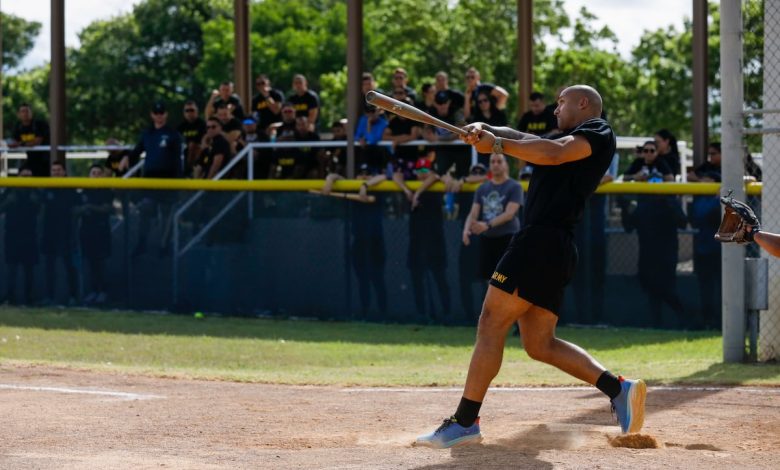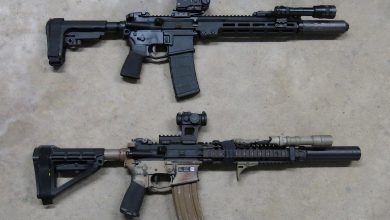Why sports metaphors fall short in Army leadership

There were many expressions and figures of speech that surprised me when I first arrived at West Point cadet basic training (CBT). Coming from a family that has not seen one of its members serve in the military since World War II, much of the Army’s culture was a complete shock to me. I had never heard so many acronyms used in one sentence, and I’m still figuring out some acronyms on the Concept of Operations (CONOPS) template.
In the last year, I have immensely enjoyed many parts of Army culture. Being called a warfighter is still a highlight of my day, and overall, I feel a far greater sense of connection with my peers than I ever have before. Yet one part of Army culture stands out as problematic: the ubiquity of sports metaphors when talking about complex situations.
From my perspective, the Army seems to rely excessively on sports metaphors to simplify complex ideas. I have seen how these metaphors help break down jargon-heavy ideas, but I fear that they also can contribute to an oversimplification of the realities of war.
I have massive respect for the Army and appreciate our efforts to communicate efficiently. I hope to contribute to our organization’s growth by sharing my observations as a new member of the Army.
During CBT, I heard more times than I can count expressions like, “This mission is going to be a home run”, “We’re in the bottom of the ninth,” or “Keep pushing; we’re at the 5-yard line.”
These kinds of expressions make ideas much easier to understand, especially here at West Point where sports are very important to our culture. Followers understand what their leader is trying to say when the idea is expressed in terms of situations any sports fan is familiar with. Yet these metaphors risk creating a serious problem among our officer corps. We cannot expect the enemy to play by our rules and expectations.
In sports, the playing field is well-defined. There is a clear way to score points, and each achievement on the field gives a team a specific number of points. The game starts and ends at a set time. Everyone has a role to play on the team, and it’s rare that a player will be pushed into a position they’re unprepared for.
War does not play by our rules. The Global War on Terror continuously defied the Army’s expectations, forcing it to reevaluate its assumptions. Even when we think the game is over, the enemy may still be playing, just on a different field. For example, after the U.S. Army took Baghdad, the war should have ended by conventional standards, yet a whole new conflict began.
When you’re playing a football game, you don’t have to consider how the way you score points may affect how the other team treats you after the game. If you run out of bounds, the officials pause the game. However, in war, there is no pause. There is no guarantee that, even if you score more points, the enemy will decide that the game is over.
Tackling this problem may seem impossible, but as officers or future officers, we can all control what we choose to say. Challenging conventional norms, even in a small way, may be intimidating, but it is not the wrong thing to do simply because it is a bit unorthodox. It takes personal courage to try something different, but choosing the harder right over the easier wrong will pay dividends. Reducing the number of oversimplified metaphors in a brief is a simple yet powerful step both toward a leader’s own development and followers’ understanding of a mission.
The Army right now has an incredible opportunity to prepare for the next great war. With the Global War on Terror evolving to meet new challenges, we have a chance to reflect on the past two decades of military operations and improve ourselves. To take full advantage of this time, we must not adopt a mindset that our enemy will play by our rules. So, during the next brief, consider avoiding using a sports metaphor and explain the situation as it really is. As leaders, we must explain our plans clearly and precisely.
Just because it looks like we are “in the bottom of the ninth,” the way we conduct ourselves now can influence how many enemy “players” show up at the next “game.” We must trust our teams to understand the realities of the operational environment without excessive simplification. Clear and direct communication is not a burden to followers. It is a way to empower our units.
Cadet Luca Pass is in his first year at the United States Military Academy at West Point. He plans to double major in Military History and Defense & Strategic Studies. From North Carolina, he enjoys studying conflicts in the developing world and irregular warfare. Outside of class, he is an avid member of the Orienteering Club team, the Polish Culture Forum and the Film Forum.
Read the full article here






